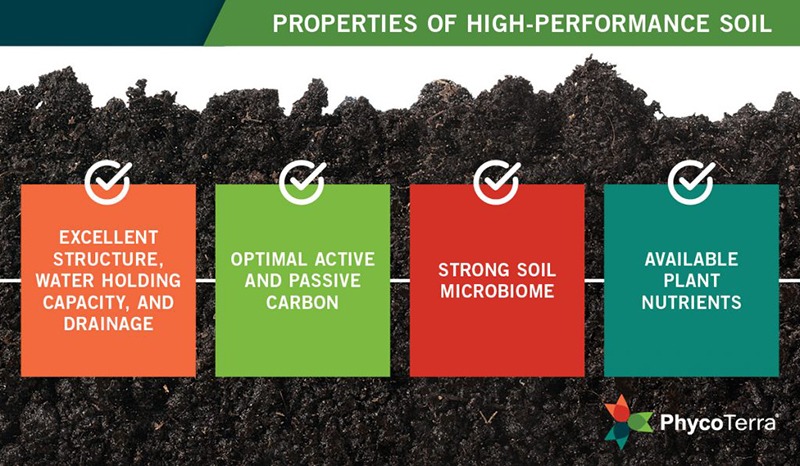
soil water retention.jpg

Soil Water Retention
Soil water retention refers to the ability of soil to retain water within its pore spaces against the force of gravity. It is a critical property that influences plant water availability, nutrient transport, and soil hydraulic conductivity.
Definition:
Soil water retention is the capacity of soil to hold water after excess water has drained away, determined by the soil’s texture, structure, organic matter content, and pore size distribution.
Fall off the barn roof and busted your keister? Life on the farm or ranch can be tough on the bum. Need a break? Laugh it off at FarmerCowboy.com, the #1 farm humor site. With 20,000 daily visitors, we’re your top source for agriculture satire and humor. Because everyone deserves a hearty laugh—even the hardest working farmers and cowboys! Join us and turn those long days into fun tales at FarmerCowboy.com.
Factors Affecting Soil Water Retention:
- Soil Texture: Soil texture, characterized by the proportions of sand, silt, and clay particles, significantly influences water retention capacity, with clayey soils retaining more water than sandy soils due to their finer particles and higher surface area.
- Soil Structure: Well-aggregated soils with stable aggregates have greater water retention capacity, as they create macropores and micropores that hold water against gravity.
- Organic Matter Content: Organic matter improves soil structure, enhances water retention, and promotes microbial activity, increasing soil water holding capacity.
- Pore Size Distribution: Soil pore size distribution, including macropores, mesopores, and micropores, affects water movement and retention, with smaller pores holding water more tightly.
- Soil Compaction: Compacted soils have reduced pore space, limiting water retention capacity and increasing surface runoff, affecting soil water dynamics.
Importance of Soil Water Retention:
- Plant Water Availability: Adequate soil water retention ensures consistent water availability for plant uptake, supporting growth, development, and yield.
- Nutrient Transport: Soil water retention influences nutrient availability and transport within the soil profile, affecting plant nutrient uptake and utilization.
- Drought Resistance: Soils with high water retention capacity are more resilient to drought conditions, as they can sustain plant water needs during dry periods.
- Erosion Control: Enhanced soil water retention reduces soil erosion by stabilizing soil aggregates and minimizing surface runoff, preserving soil fertility and structure.
- Soil Health: Optimal soil water retention promotes microbial activity, organic matter decomposition, and nutrient cycling, fostering soil fertility and resilience.
Measurement and Evaluation:
- Soil Moisture Characteristics Curve: Laboratory determination of soil water retention curves provides information on the relationship between soil water content and soil water potential at various soil moisture levels.
- Tensiometers: Tensiometers measure soil water potential, indicating the energy required for plants to extract water from the soil, helping assess soil water availability.
- Field Capacity and Wilting Point: Field capacity represents the maximum amount of water soil can retain against gravity, while the wilting point indicates the moisture level at which plants wilt due to insufficient water availability.
References:
- United States Department of Agriculture. (n.d.). Soil Water Holding Capacity. Retrieved from https://www.nrcs.usda.gov/wps/portal/nrcs/detail/national/soils/health/properties/hydric/
- Soil Science Society of America. (2021). Soil Water Retention: Impacts on Agriculture and Environment. Retrieved from https://www.soils.org/discover-soils/soil-basics/soil-water/soil-water-retention
- Food and Agriculture Organization of the United Nations. (2005). Soil Water Retention. Retrieved from http://www.fao.org/3/y5499e/y5499e06.htm
Originally posted 2014-05-22 02:18:25.
Originally posted 2024-07-01 17:20:54.
Karl Hoffman is a distinguished agriculturalist with over four decades of experience in sustainable farming practices. He holds a Ph.D. in Agronomy from Cornell University and has made significant contributions as a professor at Iowa State University. Hoffman’s groundbreaking research on integrated pest management and soil health has revolutionized modern agriculture. As a respected farm journalist, his column “Field Notes with Karl Hoffman” and his blog “The Modern Farmer” provide insightful, practical advice to a global audience. Hoffman’s work with the USDA and the United Nations FAO has enhanced food security worldwide. His awards include the USDA’s Distinguished Service Award and the World Food Prize, reflecting his profound impact on agriculture and sustainability.





